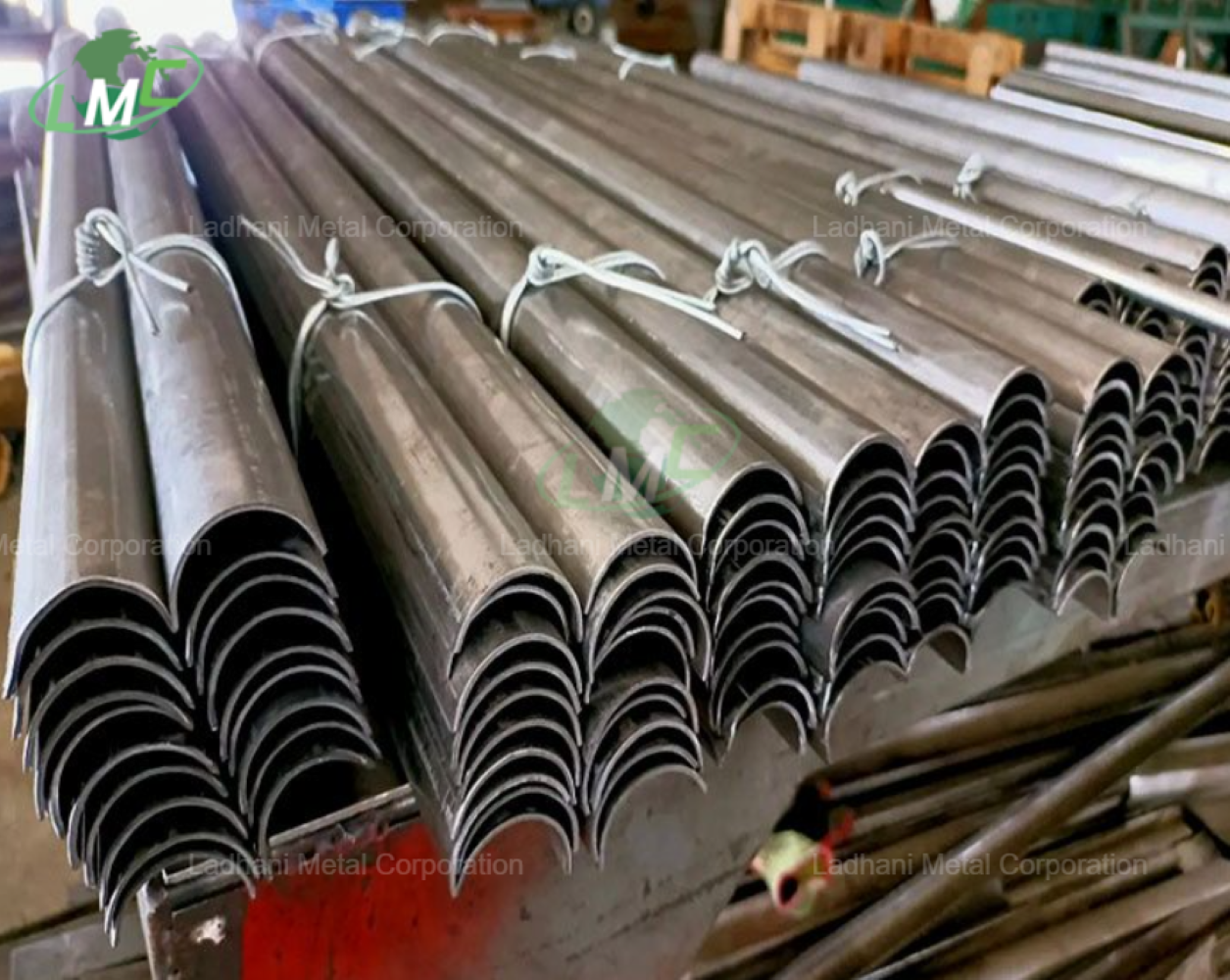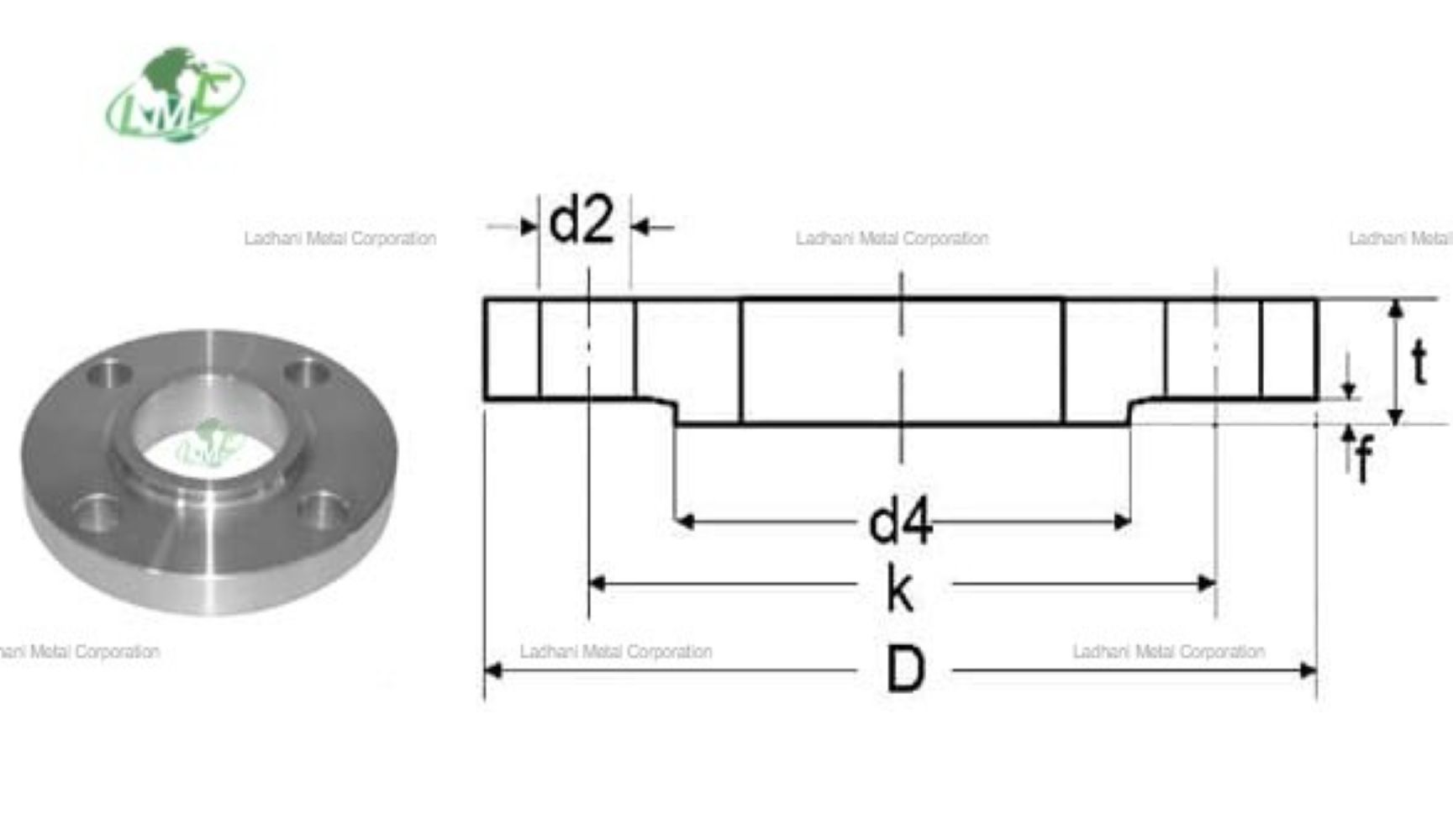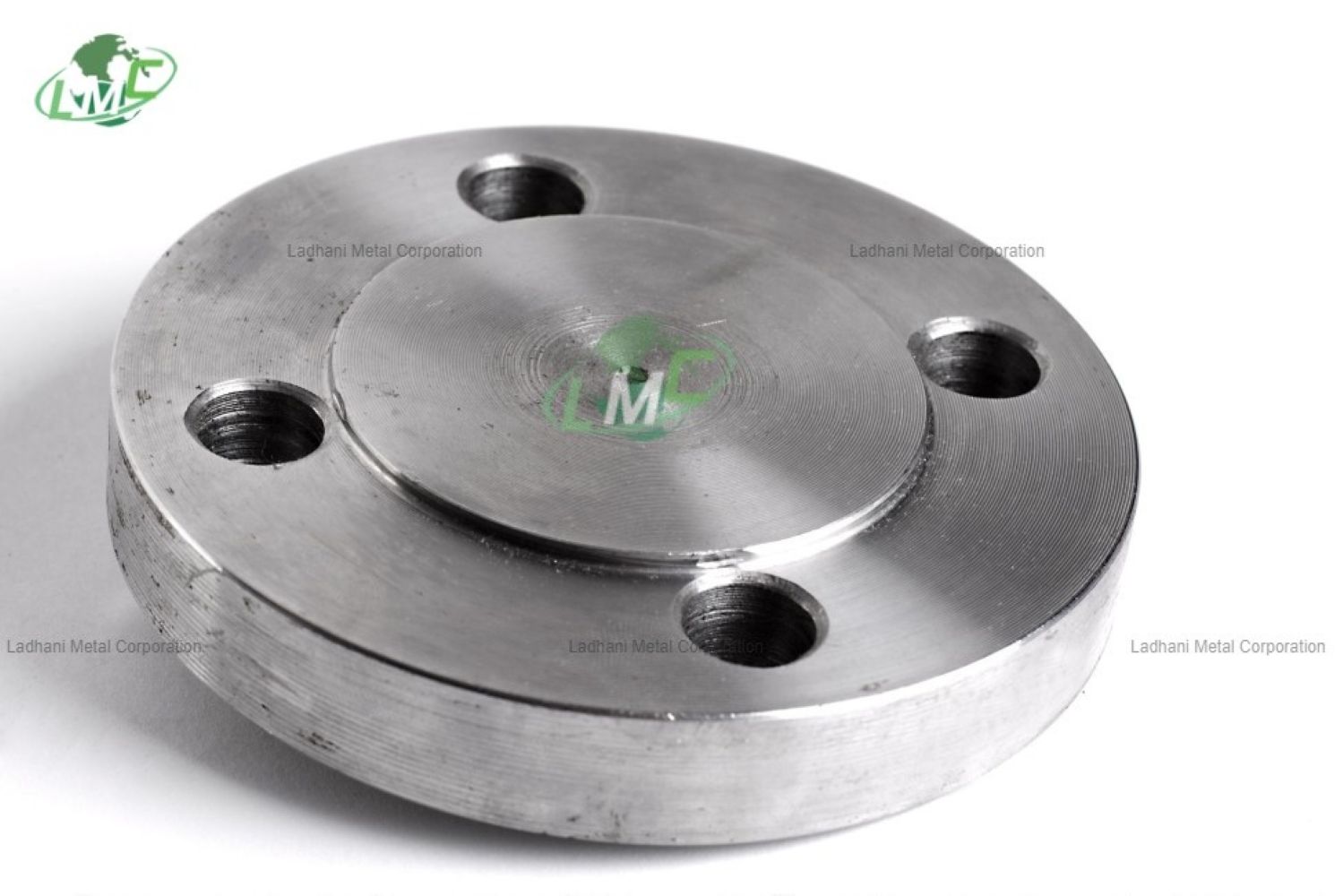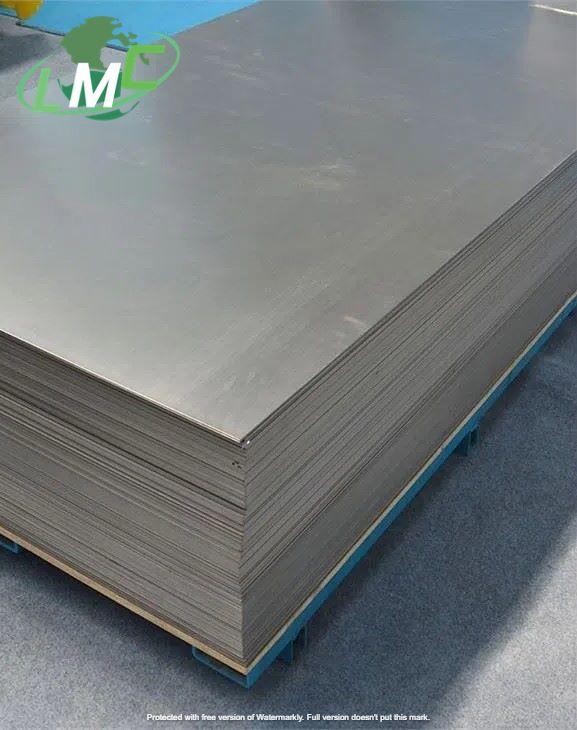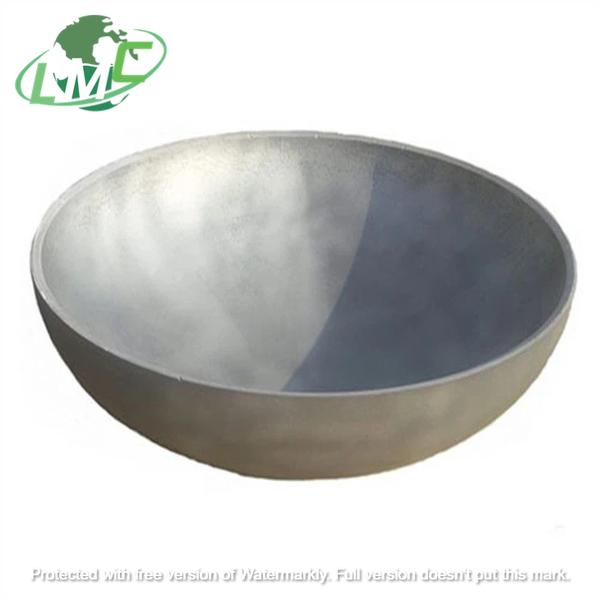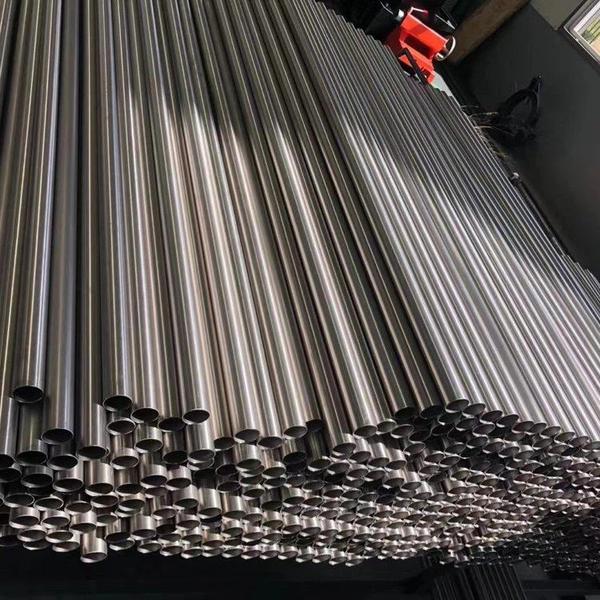Half Round Tube Shield Ladhani Metal Corporation manufactures precision-engineered Half Round Tube Shields designed to protect straight sections of boiler and heat exchanger tubes from wear, erosion, scaling, and thermal degradation. These shields are essential in areas where tubes are exposed to high-velocity gas flow, ash impact, or corrosive atmospheres. Their half-round, semi-cylindrical structure allows secure and quick installation on straight tube surfaces without the need for disassembly or major downtime. Half Round Straight Tube Shield The Half Round Straight Tube Shield is designed specifically to protect straight runs of boiler or exchanger tubes in high-temperature, corrosive, and abrasive service environments. These shields act as a barrier between the process medium and the tube surface, reducing the risk of tube thinning, cracking, and premature failure. Fabricated from a variety of stainless steels and heat-resistant alloys, the shields are available in multiple grades to suit varying application demands . Ladhani Metal Corporation is a trusted manufacturer, supplier, and exporter of Half Round Straight Tube Shields, offering customizable shielding solutions for a wide range of thermal process equipment and conditions. Available Material Grades • Stainless Steels: SS 304, 304L, 310, 310S, 316, 316L, 410, 420, 430 • Heat-Resistant Alloys: 1Cr13, 1Cr18Ni9Ti, Cr25Ni20, 1Cr25Ni20Si2, Cr23Ni13, 1Cr20Ni14Si2, Inconel 600, and others Typical Chemical Composition (example – SS 304) • Carbon (C): ≤ 0.08% • Manganese (Mn): ≤ 2.00% • Phosphorus (P): ≤ 0.045% • Sulfur (S): ≤ 0.030% • Silicon (Si): ≤ 1.00% • Chromium (Cr): 18.0 – 20.0% • Nickel (Ni): 8.0 – 10.5% • Iron (Fe): Balance Applications: Designed for use in systems where straight tube lengths are exposed to hot, corrosive gases, ash particles, or scaling environments. Uses • Protection of straight boiler tubes in high-temperature zones • Shielding of exchanger tubes in oil refineries and chemical plants • Surface protection in economizers, superheaters, and reheaters • Applied in Waste Heat Recovery Boilers (WHRBs) and HRSGs • Suitable for utility boilers in thermal and captive power plants Features • Corrosion-resistant – Manufactured from stainless steels and alloys suited for chemical and high-heat environments • Thermal stability – Capable of withstanding prolonged exposure to high temperatures without deformation • Wear protection – Prevents tube erosion from fly ash, flue gas, and thermal cycling • Precise fitment – Custom-bent and sized to match tube diameter and length requirements • Easy installation – Can be clamped, welded, or banded with minimal downtime • Custom options – Available in various lengths, wall thicknesses, and alloy choices Applications • thermal power plants – Protects straight tubes from scale buildup and gas impingement • petrochemical refineries – Used in process heaters and tube exchangers to combat high-temperature corrosion • WHRB systems – Applied in exhaust zones to preserve tube integrity • chemical processing units – Offers reliable protection in corrosive steam and flue environments • pulp and paper industry – Shields recovery boiler tubes from ash erosion and chemical attack Conclusion The Half Round Straight Tube Shield by Ladhani Metal Corporation – manufacturer, supplier, and exporter – provides robust protection for straight tube sections in boilers, heat exchangers, and process heaters. With a range of alloy options and custom-fit configurations, these shields enhance the durability and efficiency of heat transfer systems operating in corrosive, abrasive, or high-thermal-stress environments. For technical guidance, size customization, or pricing, contact Ladhani Metal Corporation.
Send Message
